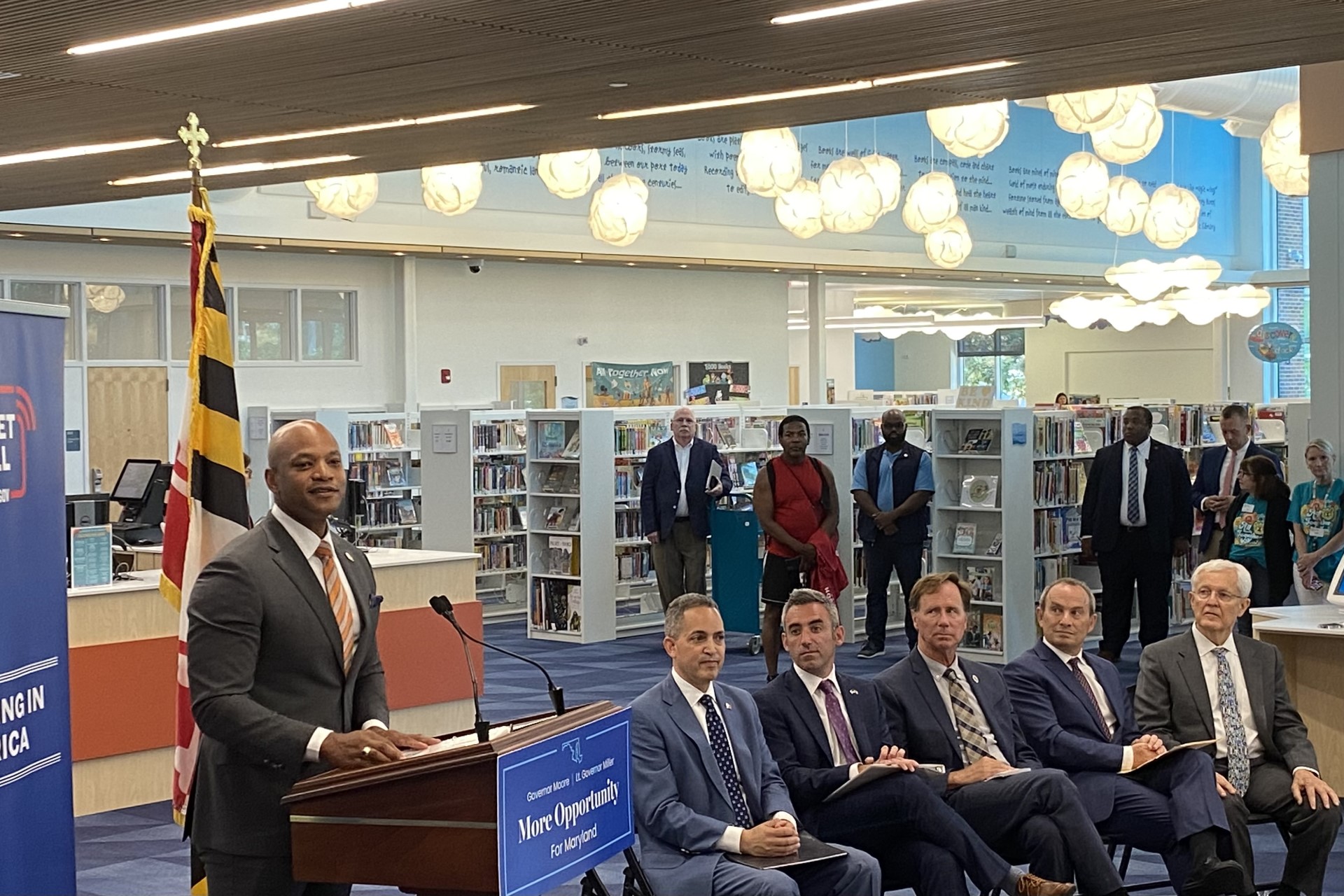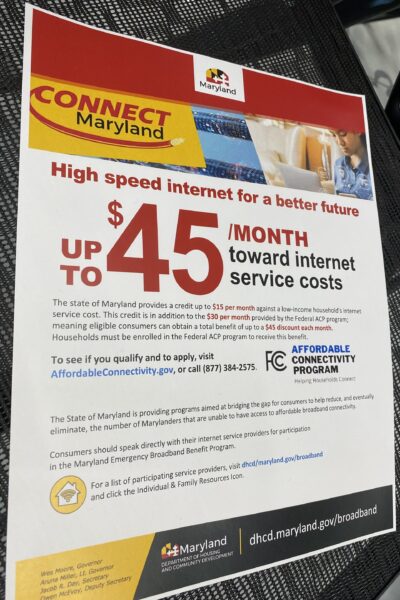Maryland to receive almost $268M in federal money for broadband access

Earlier this year, Don Graves visited Coppin State University to award a nearly $4 million grant for the school to help provide internet access for residents in West Baltimore.
Graves, a U.S. deputy secretary of Commerce, returned to Maryland on Tuesday to announce the state will receive about $268 million to help bridge a digital divide. He said more than 44,000 locations in the state have either limited or no broadband access.
“Maryland is receiving an investment…to ensure that everyone in the state has access,” he said at the Michael E. Busch Annapolis Library. “Internet access today is not a luxury. It is an absolute necessity.”
Graves was joined by state and county officials including Gov. Wes Moore (D), Anne Arundel County Executive Steuart Pittman (D) and Jake Day, secretary for the state’s Department of Housing and Community Development.
Moore said the state will conduct expansion of internet access in three phases: assessing the state’s infrastructure to provide broadband access, making internet services affordable for Marylanders and educating them on internet usage and what it can provide.
“Access to the internet means that the students in West Baltimore or Wicomico [County] know we’re willing to invest in their education,” the governor said. “The future of our society depends on it.”
Officials also highlighted the $14 billion Affordable Connectivity Program that’s part of the bipartisan infrastructure bill President Joe Biden signed into law in November 2021. The program was established after the COVID-19 pandemic affected the nation in March 2020 and millions of Americans were forced to stay at home. The pandemic made it clear that millions had limited to no access to modern technology.
The program, managed by the Federal Commerce Commission, provides up to $30 in monthly discounts for households to receive high-speed internet service and up to a $75 monthly discount for those on tribal lands. Those eligible also can receive a discount of up to $100 toward a laptop, tablet, or desktop computer through participating internet providers.
Some of those eligible include households with income at or below 200% of the federal poverty line, households with a family member who received a Pell grant to attend college during the current award year, and households that receive benefits from the Supplemental Nutrition Assistance Program (SNAP).

A flier on the Affordable Connectivity Program for eligible Maryland households. Photo by William J. Ford.
Maryland residents who enroll in the program could be eligible for another discount of up to $15 per month for internet access. That money comes from the state’s Office of Broadband.
Evan Marwell, CEO of the national nonprofit EducationSuperHighway, which works with state and local officials on the Affordable Connectivity Program, said Tuesday that Maryland remains the only state in the nation to provide an additional discount.
The San Francisco-based non-profit advocates expansion of broadband access in underserved communities. According to a report it released in October, nearly 52 million households nationwide are eligible for the connectivity program, but only 25 million are enrolled because others “are unaware” the program exists.
On Tuesday, Marwell said about 28% of the 780,000 eligible households in Maryland are enrolled in the program.
“We know we can do better,” he said. “That’s partly why we’re here to get the word out.”
AARP Maryland has joined the effort to spread the word about the program for its more than 850,000 members aged 50 and older.
“AARP fought for the Affordable Connectivity Program because too many Americans do not have access to the affordable, high-speed internet they need to work, attend school, see the doctor and avoid isolation,” AARP state director Hank Greenberg said in a statement. “The end of many COVID-era relief programs is taking a financial toll on many Maryland families.”




 Creative Commons Attribution
Creative Commons Attribution